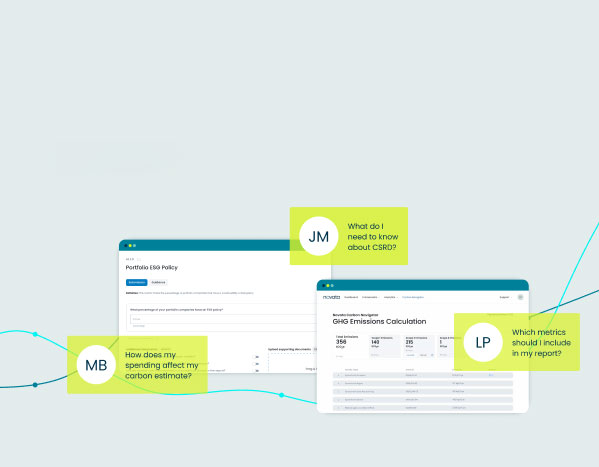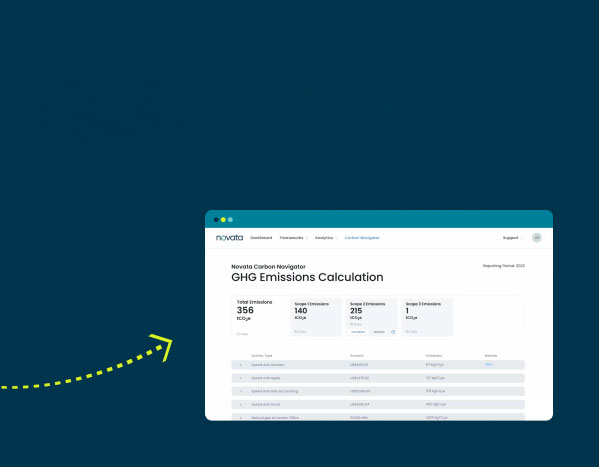As regulators increase efforts to validate sustainability claims in financial markets, the EU’s landmark Sustainable Financial Disclosure Regulation (SFDR) is setting a precedent for other regions as they define and prioritize sustainability.
Introduced in 2019 and enacted in part in 2021, SFDR fully took effect in January 2023. The regulation provides a standardized reporting lens for EU investors to distinguish and compare investment products based on sustainability characteristics. All of this aims to eliminate greenwashing across capital markets. The scope of the regulation is broad — firms with investors in Europe, as well as financial market participants who market, or appear to market, to clients in the region, will be expected to comply.
SFDR requires firms to provide different disclosures at the firm and fund levels. However, the complexity of the regulation presents a challenge for investors looking to comply. With the first deadline for mandatory disclosures looming on June 30, private equity and private credit firms will need to consider a few factors to ensure they are prepared to track and report on ESG data in a timely manner.
1. Seeking Regulatory Advice
SFDR’s requirements are extensive and extend into other EU regulations around reporting financial and non-financial information. As such, firms should consider consulting legal counsel or advisory services to understand their obligations under the regulation.
Advisory services with subject matter expertise on EU regulation can provide insight into the processes needed to be compliant. Some other questions to consider when looking for outside counsel and advisory services include:
- How much experience does the advisor have navigating EU regulation?
- Does the advisor have industry-specific subject matter expertise relevant to the companies in which you invest?
- Does the advisor partner or integrate technology to gather and calculate the Principal Adverse Impacts (PAIs)? Do they have a roadmap to show handoffs between their services and a technology provider?
2. Collecting Underlying Data
Under SFDR, fund managers must make a series of qualitative and quantitative disclosures on their websites as well as in pre-contractual and periodic disclosures. They will also need to publish an annual PAI statement related to investment decisions on sustainability factors. To meet these disclosure requirements, fund managers will need to collect the underlying sustainability criteria from portfolio companies and track it on a quarterly basis.
ESG data collection can be a challenge when portfolio companies lack the necessary capacity and experience. Requesting the data from portfolio companies in a timely manner will ensure they have enough lead time to collect and report on the relevant data. Additionally, firms should consider an ESG data management tool to help simplify the data collection process and provide guidance to portfolio companies.
3. Calculating Principal Adverse Impacts (PAIs)
One of the most prominent features of SFDR, the annual PAI statement, is an avenue for fund managers to showcase the sustainability performance of their financial products. Firms will need to calculate PAIs from the average of four predetermined quarterly dates and report on an annual figure in the PAI statement published on their website.
Calculating the PAIs and rolling up company data to the portfolio is a time- and resource-intensive technical process complicated by insufficient technical guidance. To ensure accurate calculations, fund managers will need to plan out the data collection, calculation, and disclosure timelines to account for the time needed to collect, review, and report on the data.
4. Planning Out Website Disclosures
SFDR aims to improve transparency into the sustainability impacts of financial products and enable investors to access key data. Website disclosures, including the PAI statement, are an important part of achieving this goal. EU fund managers will have some obligation to disclose qualitative data on their websites, regardless of whether their financial products consider sustainable objectives. When planning out SFDR-related disclosures, fund managers should consider aligning internally with marketing teams, in-house counsel, and regulatory advisors to ensure they disclose the right information at the right time.
Novata’s SFDR Support for Private Markets
With the June 30 reporting deadline fast approaching, collecting underlying data is essential for firms looking to comply. Novata supports fund managers by providing an easy, intuitive platform to collect underlying data for the PAI statement and manage the timely submission of data. In addition, Novata provides an off-platform template for PAI calculations that meets SFDR specifications and guidance through a dedicated team of ESG experts.






